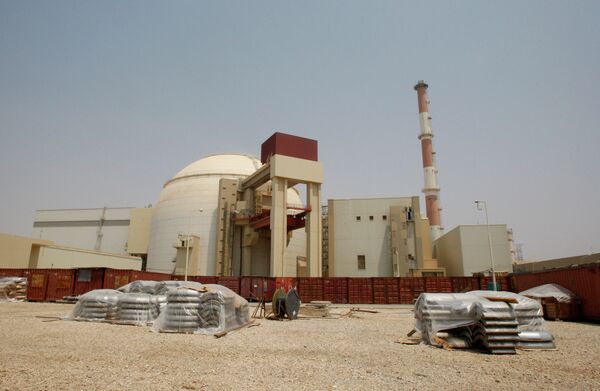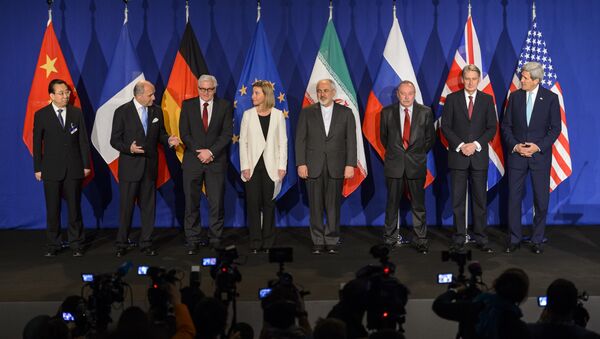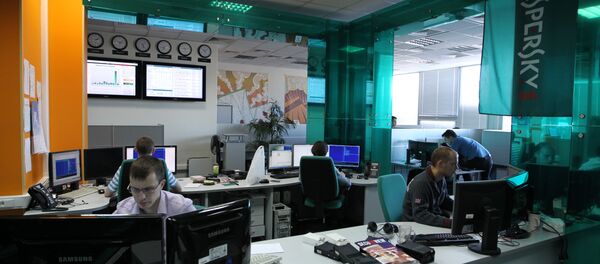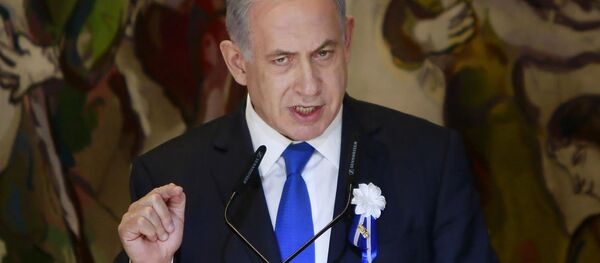VIENNA, June 11 (Sputnik) — Russia is concerned about a slowdown in the progress of Iran nuclear talks as the sides are still in deadlock over remaining key issues, including lifting of sanctions and access to Iranian facilities, Deputy Foreign Minister Sergei Ryabkov said Thursday.
The sides are still to resolve some major differences, including the sequencing of sanctions relief and access to Iranian nuclear sites for international monitors. Tehran is opposed to allowing inspectors into military sites, which it claims are not related to its nuclear program.
Arak Reactor Reconfiguration Remains Obstacle in Iran Nuclear Talks
P5+1 and Iran have not determined yet the detailed approach to the reconfiguration of the controversial nuclear reactor in Arak much less the financing of the project, bringing the progress in Iran nuclear talks to a virtual standstill Ryabkov said.
"P5+1 and Iran have reached understanding about the future configuration of the heavy-water reactor in Arak, but the sides are still unclear on who will reconfigure the reactor, when, how and with what kind of financing."
"Without answering these questions, we will not be able to move forward towards the final agreements," Ryabkov told reporters.
P5+1 to Discuss Ministerial Participation in Iran Nuclear Talks
"The issue of when ministers can join the negotiations process will be raised at the meeting of the sextet," Ryabkov told journalists.
During the previous round of talks on a framework deal, which wrapped up in the Swiss city of Lausanne in April, Iran agreed to cut back uranium enrichment and decrease the number of centrifuges. It has been opposed to giving international inspectors access to military sites, which Tehran says are not related to its nuclear program.
The P5+1 group wants to prevent the Islamic republic from acquiring a nuclear weapon, while Iran maintains its research is for purely peaceful purposes.
Only Solution to Issue of Access to Iranian Nuclear Facilities Deal With IAEA
The only solution to the issue of allowing regulated access to Iranian nuclear facilities is the framework agreement with the International Atomic Energy Agency (IAEA), Russian Deputy Foreign Minister Sergei Ryabkov said.

"The only acceptable and universal solution of the issue is the Iran-IAEA framework document and the continuation of the discussion on how this document will be used for future agreements which… will give IAEA very large tasks and will put Iran in front of the necessity to solve the issue of access to its objects."
According to Ryabkov, only regulated access is being discussed, not inspections or interrogations.



